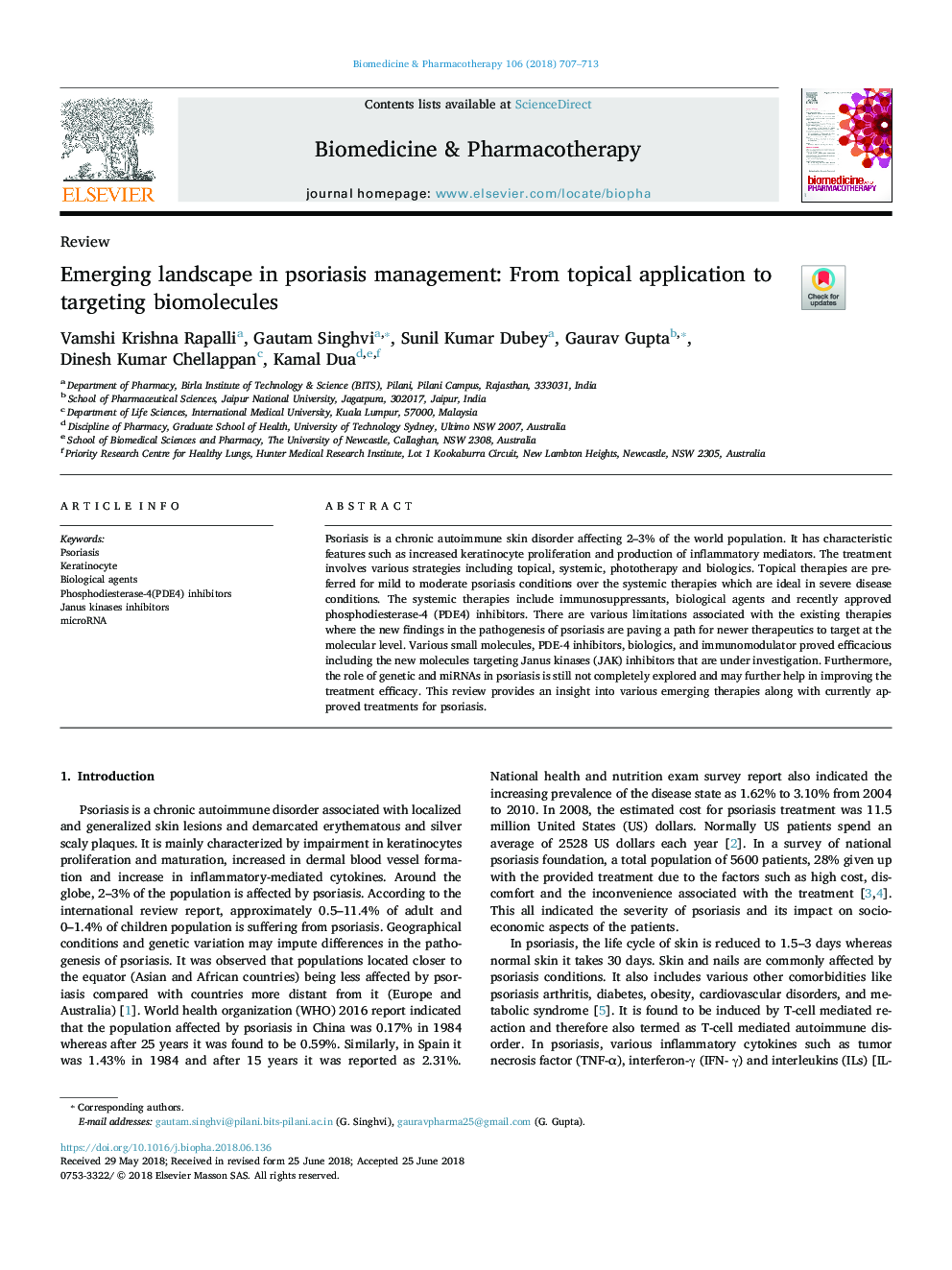| Article ID | Journal | Published Year | Pages | File Type |
|---|---|---|---|---|
| 8524583 | Biomedicine & Pharmacotherapy | 2018 | 7 Pages |
Abstract
Psoriasis is a chronic autoimmune skin disorder affecting 2-3% of the world population. It has characteristic features such as increased keratinocyte proliferation and production of inflammatory mediators. The treatment involves various strategies including topical, systemic, phototherapy and biologics. Topical therapies are preferred for mild to moderate psoriasis conditions over the systemic therapies which are ideal in severe disease conditions. The systemic therapies include immunosuppressants, biological agents and recently approved phosphodiesterase-4 (PDE4) inhibitors. There are various limitations associated with the existing therapies where the new findings in the pathogenesis of psoriasis are paving a path for newer therapeutics to target at the molecular level. Various small molecules, PDE-4 inhibitors, biologics, and immunomodulator proved efficacious including the new molecules targeting Janus kinases (JAK) inhibitors that are under investigation. Furthermore, the role of genetic and miRNAs in psoriasis is still not completely explored and may further help in improving the treatment efficacy. This review provides an insight into various emerging therapies along with currently approved treatments for psoriasis.
Related Topics
Health Sciences
Medicine and Dentistry
Oncology
Authors
Vamshi Krishna Rapalli, Gautam Singhvi, Sunil Kumar Dubey, Gaurav Gupta, Dinesh Kumar Chellappan, Kamal Dua,
